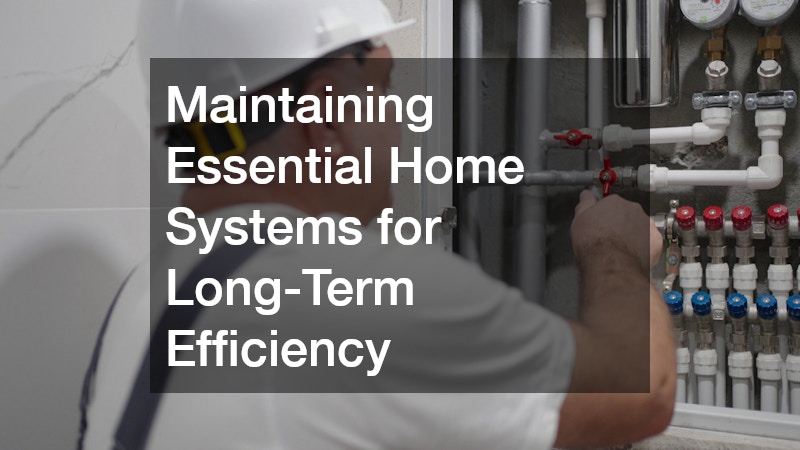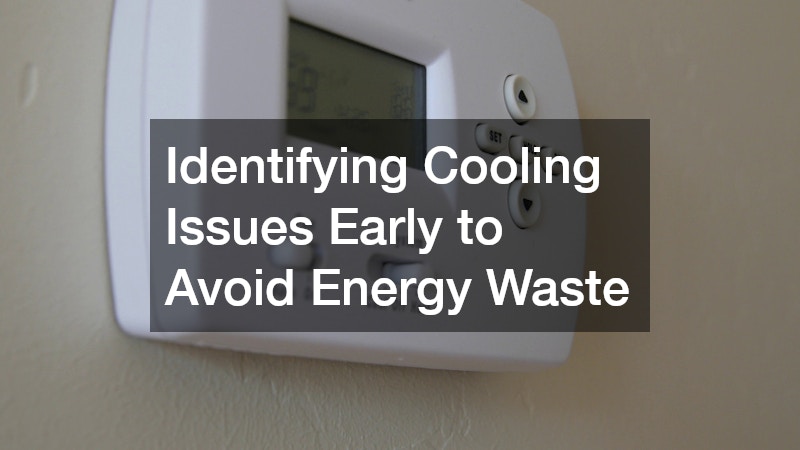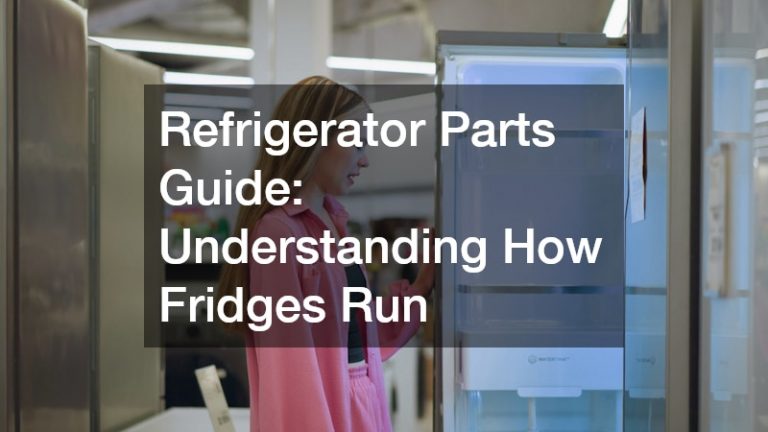

Owning a home for the first time can be both exciting and overwhelming, especially when the first wave of monthly utility bills arrives. Many new homeowners are surprised by how much energy and water their home actually uses—often far more than expected. While some of these costs are unavoidable, a large portion of them stem from inefficiencies hidden throughout the home. Appliances that work harder than they should, piping systems that quietly waste water, and heating or cooling units that operate under strain can all contribute to rising monthly expenses. Preventive home care helps eliminate these inefficiencies before they become costly problems, ensuring that a new home operates smoothly from day one.
Maintaining Essential Home Systems for Long-Term Efficiency

The systems that run behind the walls and under the floors play a critical role in a home’s overall efficiency, even though they remain mostly out of sight. Plumbing networks must work seamlessly to deliver consistent water flow and remove wastewater efficiently. When pipes, connections, or fixtures are neglected, small leaks and slow drips can develop and go unnoticed for long periods. These minor issues often waste a substantial amount of water, drive up monthly utility bills, and place strain on other systems reliant on steady water supply.
A targeted approach to maintaining these systems can prevent unnecessary waste and costly repairs. Homeowners can monitor water pressure, check for dampness around fixtures, and observe any changes in performance that indicate early plumbing concerns. When problems appear more complex or hard to locate, contacting a plumbing service ensures that issues such as pipe wear, silent leaks, or fixture malfunctions are identified and addressed promptly. Taking small proactive steps helps preserve water efficiency and keeps essential systems running reliably.
In addition to regular inspections, homeowners can adopt habits that reduce wear on their plumbing systems. Avoiding harsh chemical drain cleaners, insulating exposed pipes during colder seasons, and monitoring household water usage patterns can help maintain system health. When homeowners remain attentive to how their plumbing performs daily, they can often spot abnormalities quickly. This awareness reduces the likelihood of hidden issues growing into major problems that compromise efficiency and increase long-term utility costs.
Preventing Blockages to Support Smooth Home Operations
A well-functioning drainage system ensures that wastewater moves efficiently out of the home, preventing backups, standing water, and unnecessary water use. Drains frequently collect hair, grease, soap residue, and other debris that can accumulate over time. As the buildup grows, drains may begin to empty more slowly, prompting homeowners to use additional water as they wait for sinks or tubs to clear. Preventive care helps maintain smooth drainage and prevents small blockages from developing into full clogs.
More proactive drain management can greatly reduce household water waste. Simple actions such as using drain strainers, periodically flushing drains with hot water, and avoiding the disposal of grease or fibrous materials can keep drains flowing freely. When deeper buildup is present, a professional drain cleaning service can safely remove hidden obstructions and restore normal function. Maintaining open drains supports better household efficiency and prevents issues that could lead to plumbing damage or costly repairs.
Beyond routine drain care, homeowners can improve efficiency by remaining observant of early signs of blockage. Gurgling sounds, lingering odors, and inconsistent draining often indicate developing issues within the system. Scheduling periodic inspections can help catch these issues before they disrupt daily routines or increase water usage. With consistent attention, the drainage system remains dependable, efficient, and capable of handling household demands without strain.
Ensuring Reliable Access to Hot Water in Every Season

Hot water plays an essential role in everyday life, and the system responsible for providing it can significantly affect energy consumption. Water heaters that are poorly maintained or aging often require more energy to deliver the same performance. Sediment buildup, corrosion, and insulation wear can make the unit work harder than necessary, resulting in longer wait times for hot water and increased energy usage. Preventive care ensures that this important system remains efficient throughout the year.
Specific maintenance steps can greatly improve water heater performance. Flushing the tank to clear sediment, testing the temperature settings, checking insulation, and monitoring changes in water consistency are all valuable preventive measures. When a system becomes outdated or struggles to keep up with household demands, professional water heater installers can provide guidance on repairing or replacing the unit. A well-maintained water heater supports lower utility bills, faster water delivery, and greater household comfort.
Homeowners can further improve efficiency by reducing unnecessary hot water consumption. Installing low-flow fixtures, insulating hot water lines, and spacing out high-demand tasks can ease the burden on the water heater. Additionally, understanding the age and expected lifespan of the unit helps homeowners plan for timely upgrades. Consistent attention to these factors prevents unexpected breakdowns and helps maintain steady, efficient access to hot water.
Optimizing Whole-Home Climate Control for Better Performance
Climate control systems are among the largest contributors to a home’s energy usage. Heating and cooling systems must operate efficiently to maintain comfortable indoor temperatures without driving up electricity or fuel costs. When these systems experience dust buildup, airflow restrictions, or aging components, they often consume more energy to maintain performance. Preventive maintenance ensures that these systems remain responsive, effective, and economical year-round.
To keep climate control systems functioning properly, homeowners can adopt simple habits such as regularly changing air filters, checking airflow from vents, and keeping exterior units free of debris. Monitoring utility bills and listening for unusual noises can provide early clues that the system may be struggling. Should the system require professional evaluation or repair, an experienced HVAC contractor can identify problem areas and offer targeted solutions. Routine care helps the system maintain efficiency and prevents costly mid-season breakdowns.
Homeowners can also support overall climate efficiency by improving insulation and sealing gaps around the home. Drafts and inadequate insulation force heating and cooling systems to work harder, reducing efficiency and increasing monthly bills. Ensuring proper sealing around windows, doors, and attics enhances the home’s thermal performance and reduces the workload on climate equipment. When combined with professional system maintenance, these improvements create a more stable and energy-efficient home environment.
Identifying Cooling Issues Early to Avoid Energy Waste

Cooling systems must operate efficiently to keep indoor spaces comfortable during warm seasons. When they begin to show signs of strain—such as slow cooling, uneven temperature distribution, or strange noises—energy usage often increases. These early warning signs typically indicate small issues that can grow more severe if ignored. Preventive care helps reduce unnecessary energy waste and keeps cooling costs manageable.
Homeowners can take several steps to monitor cooling performance. Checking thermostat settings for accuracy, observing airflow strength, and paying attention to changes in cycling behavior can help identify emerging problems. If cooling becomes inconsistent or less effective, scheduling air conditioning repair ensures that the system can be assessed and restored before major damage occurs. Addressing issues promptly helps preserve system longevity and energy efficiency.
In addition to repairs, homeowners can reduce energy waste by maintaining proper shading and ventilation inside the home. Using curtains, blinds, or reflective films helps limit heat gain, reducing the demand on cooling systems. Ceiling fans can also improve airflow and make cooling more effective without significantly increasing energy usage. These supportive habits enhance the system’s performance and reduce overall cooling costs.
Scheduling Routine Care to Improve Household Cooling Efficiency
Routine cooling system maintenance is essential for maintaining comfort and efficiency during hot months. Dust accumulation, worn parts, and refrigerant issues gradually reduce system performance if they are not addressed. Preventive care ensures that the system can operate efficiently without expending unnecessary energy. Consistent attention also helps homeowners avoid sudden breakdowns during periods of heavy use.
Specific actions can keep the cooling system functioning at its best. Homeowners can remove debris from outdoor units, ensure indoor vents are unobstructed, and inspect system components for visible issues. When a more thorough inspection is needed, scheduling an ac service ensures that refrigerant levels, electrical components, and mechanical parts are checked professionally. Regular care enhances system reliability and helps manage summer energy costs.
Improving ventilation inside the home can further support cooling efficiency. Opening windows during cooler periods, using exhaust fans to reduce humidity, and removing heat-producing clutter from around the thermostat all contribute to a more stable indoor climate. When combined with routine professional maintenance, these small adjustments help minimize cooling demands while improving system performance.
Extending the Lifespan of Cooling Equipment Through Regular Care

Cooling equipment experiences significant strain during warm months, and regular care is essential for maintaining its longevity. When components become worn or airflow becomes restricted, the equipment must work harder to achieve the same level of cooling. Over time, this increased strain shortens the system’s lifespan and raises the frequency of costly repairs. Preventive care ensures that components operate smoothly and efficiently, preserving the equipment’s longevity.
Homeowners can take targeted actions to help extend system life. Cleaning evaporator coils, straightening bent fins, and inspecting electrical connections help maintain strong, consistent performance. When deeper work is needed, professional air conditioner maintenance provides a comprehensive checkup to keep the system running safely and efficiently. This type of preventive care not only protects equipment but also helps keep utility bills stable.
Recognizing When Upgrades Improve Overall Home Efficiency
Even well-maintained cooling systems eventually reach a point where upgrades become more cost-effective than repairs. Older units typically consume more energy, operate less reliably, and struggle to meet modern efficiency standards. Recognizing early signs of decline—such as rising utility bills, frequent repairs, or uneven cooling—helps homeowners make informed decisions before the system fails unexpectedly. Preventive evaluation ensures that upgrades are made strategically rather than urgently.
Monitoring performance and repair consistency can help homeowners determine whether improvement is needed. When costs become too frequent or efficiency continues to drop, scheduling an air conditioner replacement allows professionals to install a unit designed for better performance and lower energy usage. Modern systems often offer improved temperature control, quieter operation, and substantial long-term savings. Planned upgrades help ensure uninterrupted comfort and more predictable monthly bills.
Keeping Heating Systems Functional During Cooler Months
Heating systems must operate efficiently to maintain indoor comfort during colder months. When a system begins to show signs of strain, such as inconsistent heating, loud noises, or frequent cycling, energy usage can spike quickly. Preventive care ensures that heating equipment continues to perform well throughout the season without consuming unnecessary energy. Effective maintenance also reduces the risk of unexpected breakdowns when the system is needed most.
Homeowners can support system performance by checking air filters, ensuring that vents remain clear, and inspecting the thermostat for accuracy. Addressing drafts around windows, doors, or walls can help maintain consistent indoor temperatures and reduce strain on the system. When professional help is needed, a heating repair company can diagnose issues and restore proper function. Consistent attention helps maintain a comfortable indoor environment and lower heating costs.
Improving Water Quality to Protect Home Systems and Lower Costs
Water quality affects more than just taste—it also influences the performance and longevity of household systems. Hard minerals and contaminants can accumulate inside pipes and appliances, reducing efficiency and increasing the need for repairs. Over time, poor water quality can shorten the lifespan of dishwashers, washing machines, faucets, and other fixtures. Preventive care helps ensure cleaner water, reduces strain on household systems, and contributes to lower utility bills.
Homeowners can take proactive steps to maintain good water quality. Regularly changing filter cartridges, monitoring water pressure, and checking for changes in water clarity or taste can help spot issues early. When professional support is needed, scheduling a water filter service ensures that filtration systems function effectively and that clean water flows throughout the home. Clean water supports appliance performance and helps maintain long-term system efficiency.
Preventive home care empowers new homeowners to manage their utility costs effectively while protecting the systems that keep their home running smoothly. By developing consistent habits, monitoring changes in system performance, and addressing issues before they escalate, homeowners can greatly reduce water and energy waste. Proactive maintenance not only lowers monthly bills but also extends the lifespan of essential home equipment, offering long-term savings and reliable comfort. With thoughtful attention and steady upkeep, a home becomes more efficient, predictable, and easier to maintain year after year.


